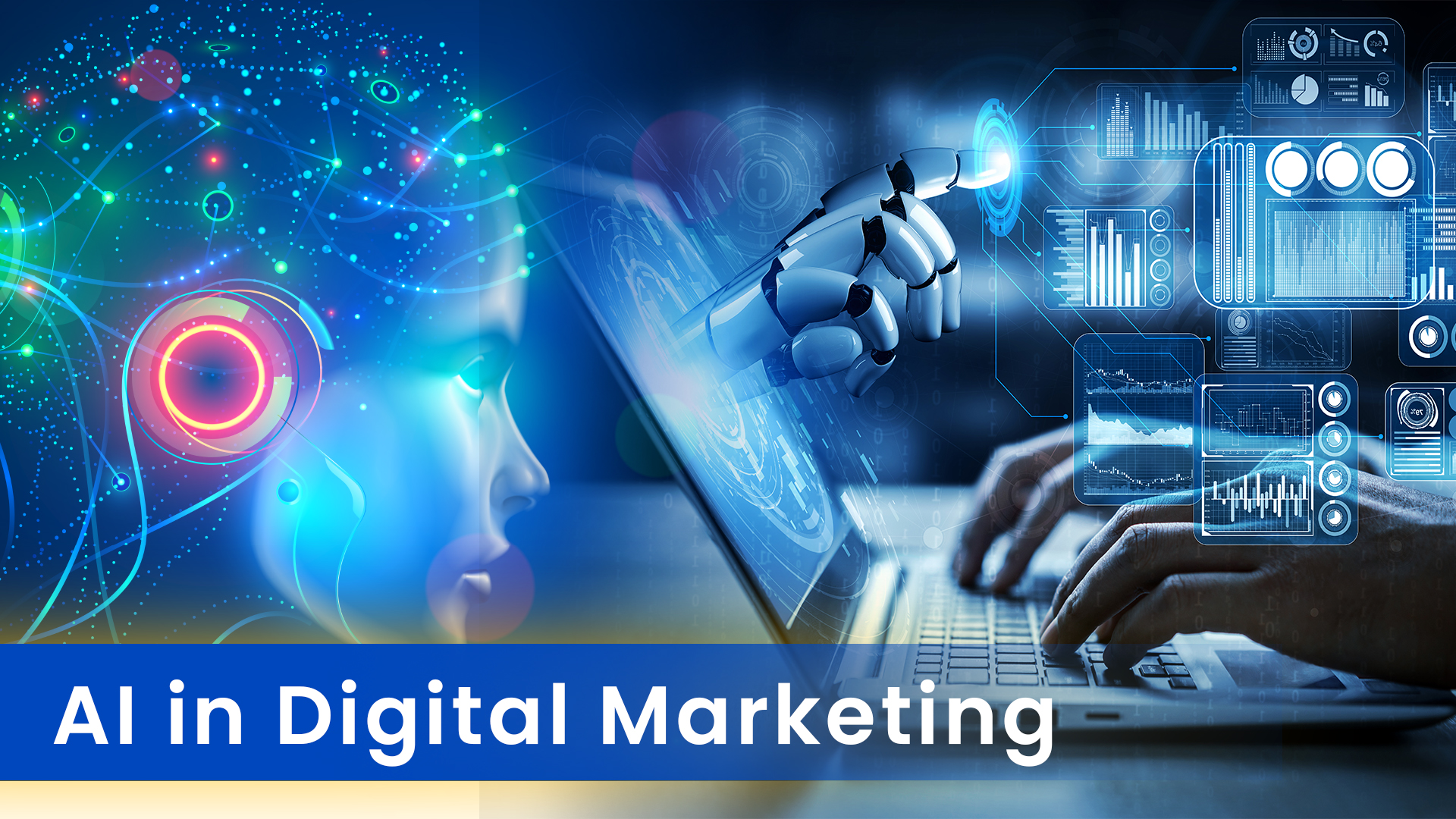In today’s fast-paced digital landscape, artificial intelligence (AI) is transforming how companies approach marketing. By automating tasks and enhancing processes, AI is not just a luxury but a necessity for marketers aiming to stay ahead of the curve. From boosting efficiency to unlocking new insights, AI is reshaping the marketing world in profound ways.
The global AI market is booming, with revenues expected to exceed half a trillion dollars by 2023. This surge reflects the growing confidence in AI’s ability to drive significant results in marketing. It’s no wonder that over 74% of marketers believe AI will be an integral part of the workplace by 2030. But how exactly are companies leveraging this technology?

What is AI in Digital Marketing?
AI in digital marketing goes beyond simple automation. It involves integrating intelligent systems that mimic human decision-making processes, allowing marketers to streamline tasks and focus on creative, strategic work. According to HubSpot’s 2024 AI Trends report, 75% of marketers have reduced manual task time, and 73% have become more productive thanks to AI.
AI’s effectiveness lies in its ability to process vast amounts of data quickly and accurately. This data-driven approach enables marketers to craft more personalized and effective campaigns, targeting the right audience with the right message at the right time.

How companies are using AI in Digital Marketing
AI is being utilized in various ways, transforming how companies engage with their audiences and optimize their marketing efforts. Here are some key applications:
1.AI in Marketing Visual Creation
Visual content is a cornerstone of digital marketing, and AI is playing an increasingly significant role in its creation. Tools like Midjourney and Leonardo.ai are helping brands stay ahead of design trends and create compelling visuals in real time. For instance, Heinz’s innovative “A.I. Ketchup” campaign used AI to generate visuals that resonated deeply with the brand’s identity, engaging the online community in the process.
2. AI in CRM (Customer Relationship Management)
AI-enhanced CRM systems allow companies to gain deeper insights into consumer behavior. By analyzing data such as purchase history and engagement patterns, AI-driven CRMs can help marketers create more personalized experiences. Spotify, for example, uses Salesforce’s AI-powered tools to enhance account engagement and deliver tailored content to its users.
3. AI Chatbots for Customer Interaction
AI-powered chatbots have revolutionized customer service by providing instant, 24/7 support. These chatbots can handle multiple inquiries simultaneously, offering quick resolutions and improving customer satisfaction. They are especially valuable for businesses operating across different time zones, ensuring uninterrupted communication with customers.

4. AI in Digital Advertising
AI has significantly improved the effectiveness of digital advertising. By analyzing user data, AI can target ads more precisely, leading to higher conversion rates and better ROI. Coca-Cola, for instance, uses AI to automatically generate logos, text, and narratives for its ads, ensuring they resonate with the target audience.

5. AI in Content Marketing
AI is transforming content marketing by enabling more precise audience targeting and content creation. AI tools like Jasper and ChatGPT can generate blog posts, social media content, and ad copy, helping marketers produce more content in less time. However, it’s essential to add a human touch to AI-generated content to ensure it meets quality standards and resonates with the audience.

6. AI in SEO
Search engine optimization (SEO) is another area where AI is making a significant impact. AI helps marketers adapt to changing search engine algorithms, identify relevant keywords, and optimize content for better rankings. For example, STACK Media uses AI to analyze keyword visibility and competitor content, improving their SEO strategy.

7. AI in User Experience (UX)
AI is enhancing UX by personalizing the user journey based on data-driven insights. Netflix, for example, uses AI to create personalized homepages for users, suggesting content based on their viewing habits and preferences.

The Future of AI in Digital Marketing
AI’s role in digital marketing is expected to grow even more significant in the coming years. As AI technology advances, it will likely become even better at understanding human emotions and preferences, allowing marketers to create even more personalized and effective campaigns.
However, the future of AI in marketing is not without challenges. Issues such as data privacy and the potential for AI to perpetuate biases are ongoing concerns. Marketers will need to balance the use of AI with ethical considerations and ensure that their campaigns maintain a human touch.
So, AI is undoubtedly reshaping digital marketing, offering companies new ways to connect with their audiences and optimize their strategies. As we move into the future, the integration of AI in marketing will continue to evolve, blending technological precision with human creativity.
